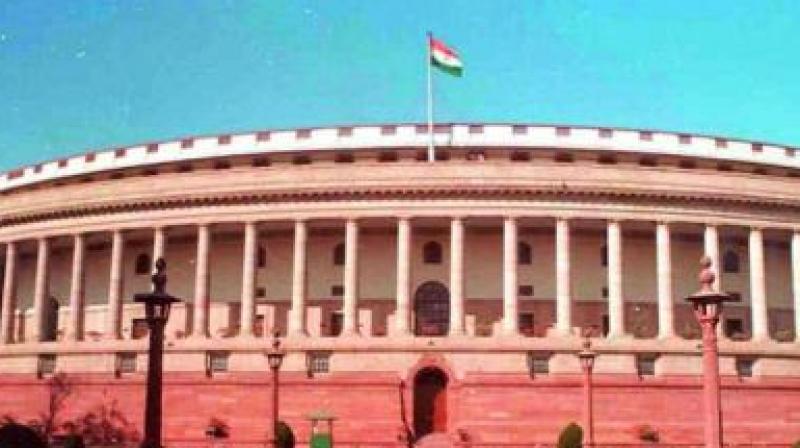Lok Sabha passes inter-state river water disputes amendment bill

New Delhi: Lok Sabha on Wednesday passed a Bill that seeks to streamline the adjudication of inter-state river water disputes.
A key feature of the Inter-State River Water Disputes (Amendment) Bill, 2019 is the constitution of a single tribunal with different benches, and the setting up of strict timelines for adjudication.
The tribunal will be mandated to deliver final award in two years and it is proposed that whenever it gives order, the verdict gets notified automatically. The Lower House approved the Bill, which seeks to amend the Inter State River Water Disputes Act, 1956, by a voice vote.
Union jal shakti minister Gajendra Singh Shekhawat said the existing tribunals constituted for resolution of river water disputes among states have failed to resolve the issues and a change in approach is needed.
Oppn calls Water Bill assault on federalism
The minister said there have been instances when a tribunal could not resolve a dispute between states for 33 years. During the debate, opposition parties like the Congress and the Trinamool alleged that the proposed legislation has no provision for consultation with states and was an assault on the federal structure.
In his reply, the minister said the bill aims to address longstanding water disputes permanently and urged all parties to back it. He said all states were consulted way back in 2013 and then the draft bill was sent to a standing committee. Its recommendations were considered before the bill was finalised, he added.
The earlier bill lapsed when the term of the 16th Lok Sabha ended. Agreeing with the concerns expressed by many members over water scarcity issue, he said India has 18 per cent of the world’s population but only four per cent replenishable water. The water issue can become a matter of concern like climate change, he said.
“It is time to take decisions with conviction on how we can consume water judiciously. Or a time will come when we will be forced to take measures.... We have to consider what will be the needs of the country in future, by 2050, and take decisions accordingly,” he said.
Under the proposed law, a retired Supreme Court judge will head the tribunal. There will be benches formed as and when required. The benches though will be wound up once a dispute is resolved.
As per the current provisions of the 1956 Act, a tribunal can be formed after a states approach the Union government with such a request and the Centre is convinced of the need to form the tribunal.
At present, there are nine tribunals including those on Cauvery, Mahadayi, Ravi and Beas, Vansadhara and Krishna rivers.

